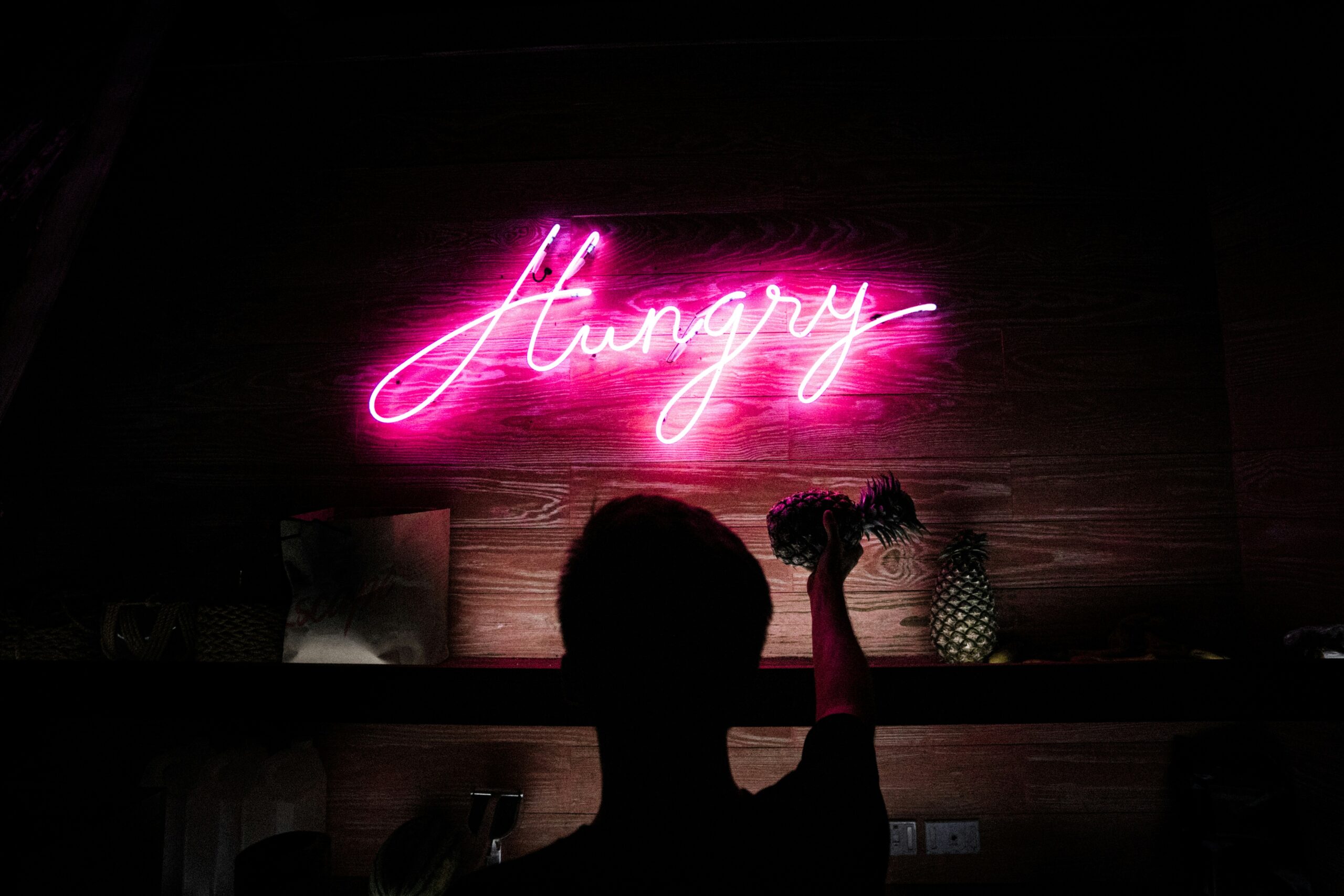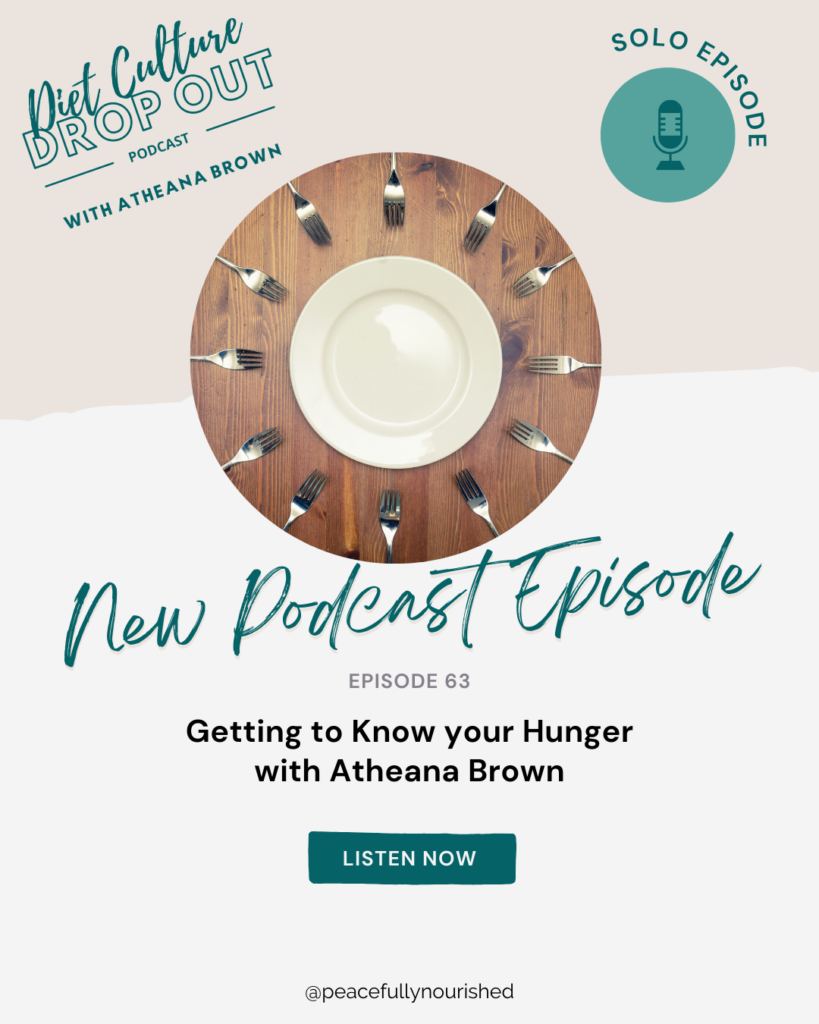Welcome back to the blog! Today, we’re diving deep into the intricate world of understanding hunger and its relationship with intuitive eating. Join me as we embark on a thought-provoking exploration of reconnecting with our body’s cues and unraveling the complexities associated with hunger.
This week on Diet Culture Dropout Podcast the episode is exploring hunger. Tune in to episode 63. Getting to Know your Hunger. This is for anyone who feels disconnected.
Understanding the Stigma around Hunger
In a society where diet culture often demonizes hunger as a negative sensation to be avoided, many individuals find themselves disconnected from their body’s natural cues. The pressure to suppress, trick, or ignore hunger leads to a sense of confusion and disconnection from one’s physiological needs.
Embracing Compassion and Self-Validation
It’s essential to relearn and reframe our perception of hunger without attaching guilt or shame to the experience. Understanding that there is no one-size-fits-all way to perceive hunger allows for a more compassionate and individualized approach to acknowledging and honoring our body’s signals.
Recognizing the Multifaceted Nature of Hunger
Hunger manifests in various forms beyond the conventional stomach rumblings. From physical sensations in different body parts to changes in mood, energy levels, and cognitive functions, hunger communicates with us in diverse ways that require attention and interpretation.
Navigating the Journey to Intuitive Eating
Embarking on the path to intuitive eating involves fostering curiosity, non-judgment, and self-awareness. By paying close attention to our physical cues, experimenting with meal combinations, and understanding the impact of timing and stress on hunger, we can gradually build a stronger connection with our body’s needs.
Embracing Neurodiversity and Individual Differences
It’s crucial to acknowledge and respect that individuals with neurodivergent brains may face unique challenges in connecting with their body’s signals. The journey to intuitive eating should be adapted to accommodate diverse cognitive processes and personal experiences.
Cultivating Body Trust and Attunement
Reconnecting with hunger is a process that requires patience, consistency, and a willingness to listen to our body’s innate wisdom. By cultivating body trust, attunement, and embodiment, we can gradually shift towards a more harmonious and respectful relationship with food and eating.
Your Unique Journey to Intuitive Eating
In conclusion, there is no one definitive way to understand hunger or embark on the path to intuitive eating. Each individual’s experience is deeply personal and deserving of self-compassion and exploration. By embracing curiosity, self-awareness, and a sense of non-judgment, we can foster a more intuitive and harmonious relationship with our bodies and nourishment.
We hope this exploration of hunger and intuitive eating has sparked insights and reflections on your own journey towards holistic well-being. Stay tuned for more empowering content on intuitive eating and mindful living!


leave a comment
share
share
share
share
share